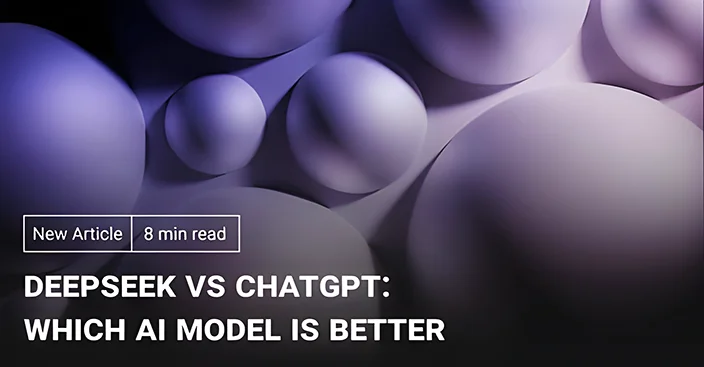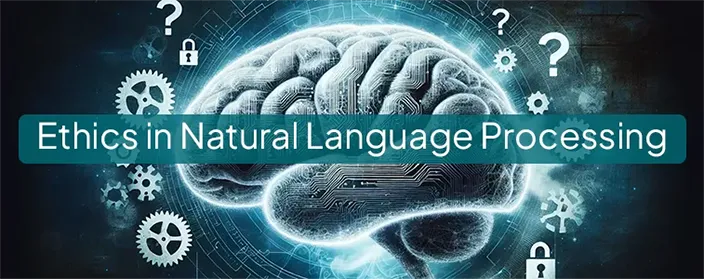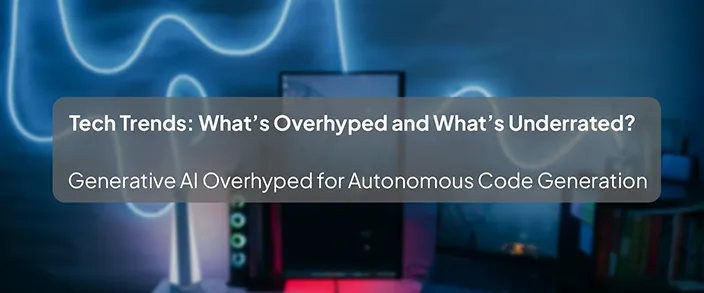Articles
DeepSeek vs ChatGPT

I'm pleased to share my latest insights in Label Your Data's article where I explore the strategic considerations for choosing between DeepSeek and ChatGPT.
I'm grateful to see my insights on AI model selection being shared. For those who've encountered the brief quote about DeepSeek and ChatGPT's comparative strengths,

I wanted to make the complete article available here. The full article explores a strategic evaluation framework that moves beyond the binary choice to a more empirical approach.
In this article, I challenge the common binary approach to AI model selection and propose a more nuanced evaluation framework. Rather than viewing these leading models as competing alternatives, I advocate for a parallel implementation strategy that enables organisations to make evidence-based decisions tailored to their specific requirements.
Key points from the article include:
- The limitations of relying solely on published benchmarks when selecting language models
- How DeepSeek's technical strengths complement ChatGPT's content creation capabilities
- A methodical evaluation framework that reduces implementation risks
- Case studies demonstrating successful multi-model approaches
This aligns with my interests, and we examine how organisations can transcend theoretical comparisons to develop empirical understanding of model performance in their unique contexts.
5 Perspectives On Ethics in NLP Development

I'm honoured to have my insights featured in Data Science Spotlight's recent article examining ethical considerations in Natural Language Processing development.
In this collaborative piece, I join industry professionals in exploring the complex ethical dimensions of NLP technologies as they become increasingly embedded in our digital infrastructure. My contribution focuses on how ethical considerations must be integrated throughout the entire development lifecycle—from conception to deployment.
Key ethical dimensions addressed in the article include:
- Bias mitigation strategies and the importance of diverse training datasets
- Privacy protection techniques like federated learning and differential privacy
- Transparency and explainability in increasingly complex models
- Multi-stakeholder governance approaches to ensure responsible innovation
This publication aligns with my research interests, reflecting my commitment to ensuring technological advancement serves society while minimizing potential harms.
A Critical Look at AI's Role in Software Development

I recently contributed my perspective on the evolving landscape of AI in software development for TechBullion's analysis of current tech trends.
In my analysis, I examine the gap between the current AI capabilities and the complex realities of software development. While the industry buzzes with excitement about autonomous coding, my research and experience suggest a more nuanced approach is needed.
The article delves into critical aspects often overlooked in the AI coding discussion:
- The intricate relationship between code generation and business requirements
- The irreplaceable role of human judgment in system architecture and security
- The collaborative nature of software development that extends beyond pure coding
This piece reflects my broader interest in the practical applications of AI in software development.
The Future of Quantum Computing

I am excited to share my latest article published in Semiconductor Magazine on the transformative impact of quantum computing on the semiconductor industry, with particular emphasis on its implications for artificial intelligence.
As an AI student and researcher, I'm particularly fascinated by how quantum computing is poised to revolutionize AI and machine learning through:
- Quantum machine learning algorithms that could exponentially accelerate training and inference processes, potentially solving complex AI problems that are currently intractable.
- Enhanced neural network architectures that leverage quantum properties for more sophisticated pattern recognition and data processing.
- Quantum-based optimization techniques that could dramatically improve AI model efficiency and performance.
Read the full article to learn more about how quantum computing is revolutionizing semiconductor development and its implications for the future of AI and technology: